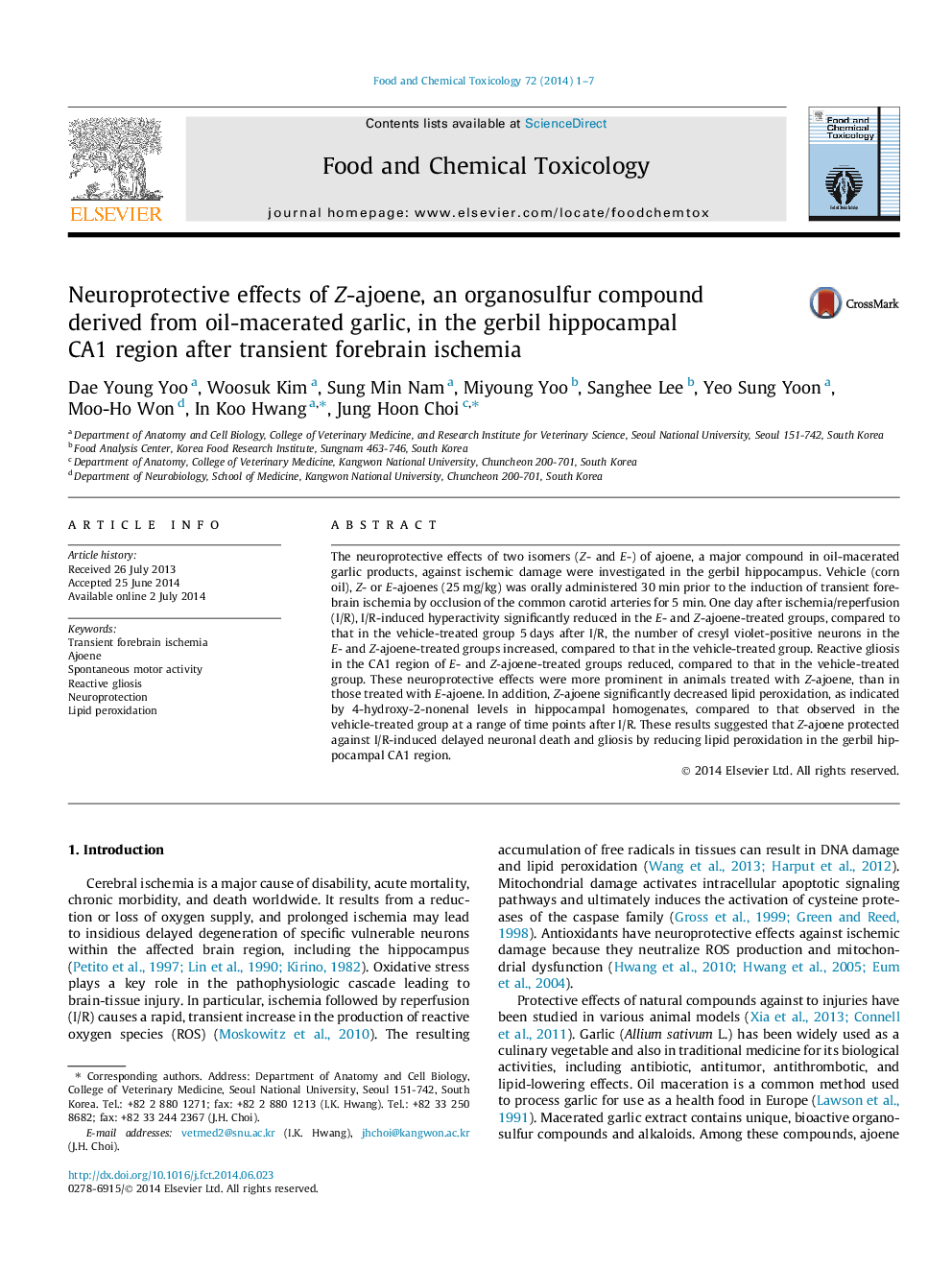| Article ID | Journal | Published Year | Pages | File Type |
|---|---|---|---|---|
| 2584984 | Food and Chemical Toxicology | 2014 | 7 Pages |
•Z-ajoene reduces an ischemic induced hyperactivity.•Z-ajoene decreases 4-HNE levels in the ischemic hippocampi.•Z-ajoene ameliorates a delayed neuronal death induced by ischemia/reperfusion.
The neuroprotective effects of two isomers (Z- and E-) of ajoene, a major compound in oil-macerated garlic products, against ischemic damage were investigated in the gerbil hippocampus. Vehicle (corn oil), Z- or E-ajoenes (25 mg/kg) was orally administered 30 min prior to the induction of transient forebrain ischemia by occlusion of the common carotid arteries for 5 min. One day after ischemia/reperfusion (I/R), I/R-induced hyperactivity significantly reduced in the E- and Z-ajoene-treated groups, compared to that in the vehicle-treated group 5 days after I/R, the number of cresyl violet-positive neurons in the E- and Z-ajoene-treated groups increased, compared to that in the vehicle-treated group. Reactive gliosis in the CA1 region of E- and Z-ajoene-treated groups reduced, compared to that in the vehicle-treated group. These neuroprotective effects were more prominent in animals treated with Z-ajoene, than in those treated with E-ajoene. In addition, Z-ajoene significantly decreased lipid peroxidation, as indicated by 4-hydroxy-2-nonenal levels in hippocampal homogenates, compared to that observed in the vehicle-treated group at a range of time points after I/R. These results suggested that Z-ajoene protected against I/R-induced delayed neuronal death and gliosis by reducing lipid peroxidation in the gerbil hippocampal CA1 region.
Graphical abstractFigure optionsDownload full-size imageDownload as PowerPoint slide
